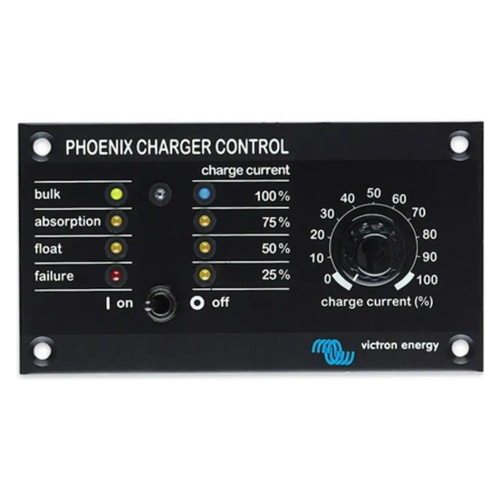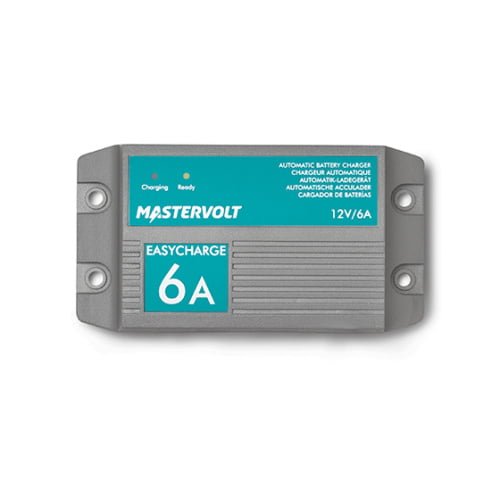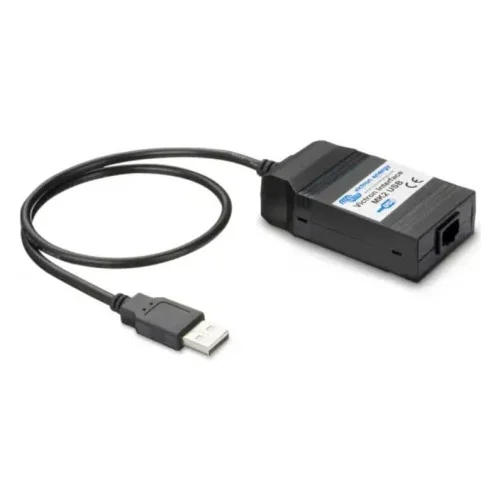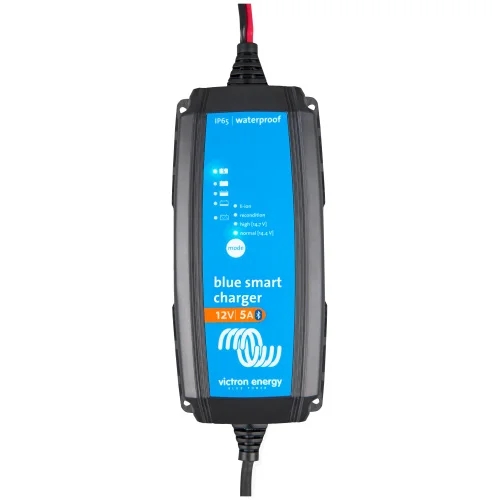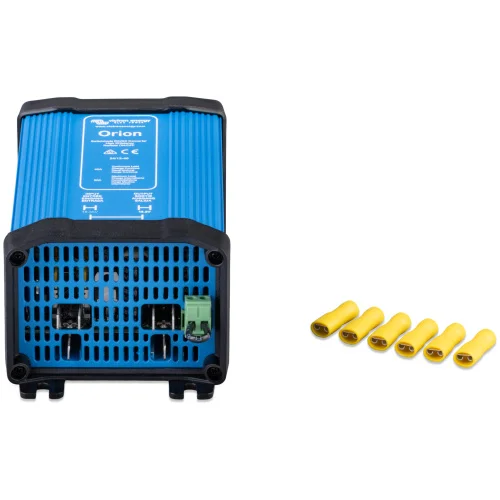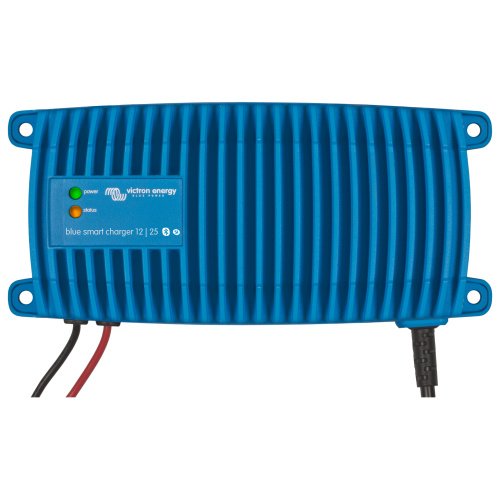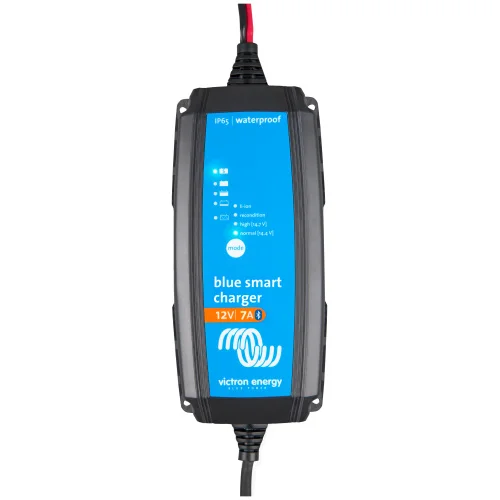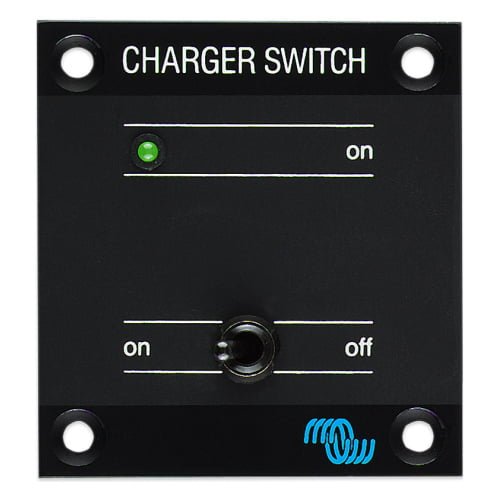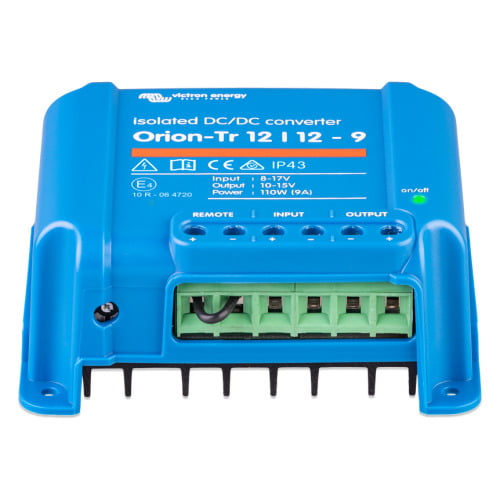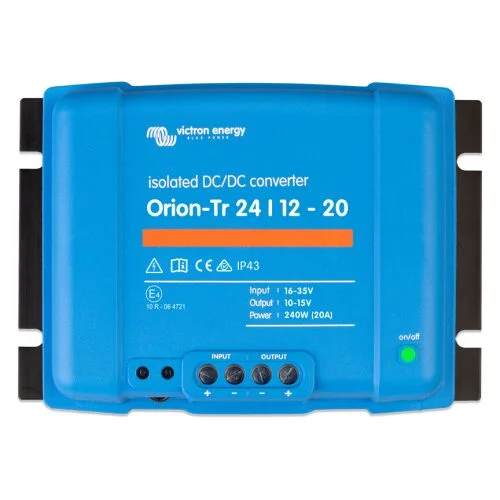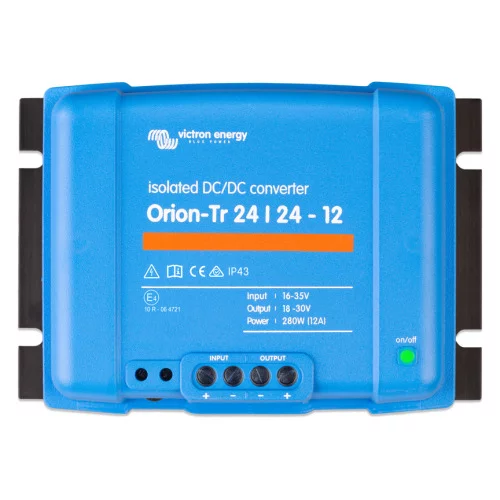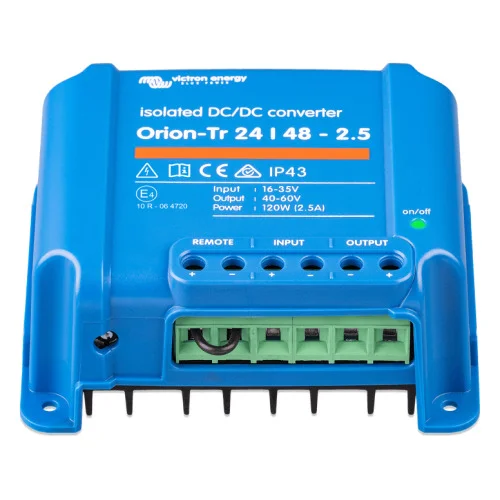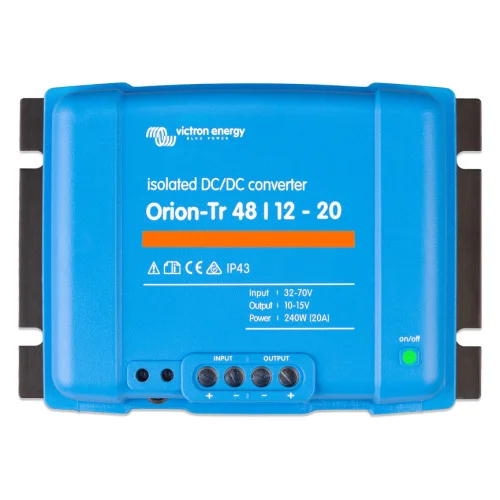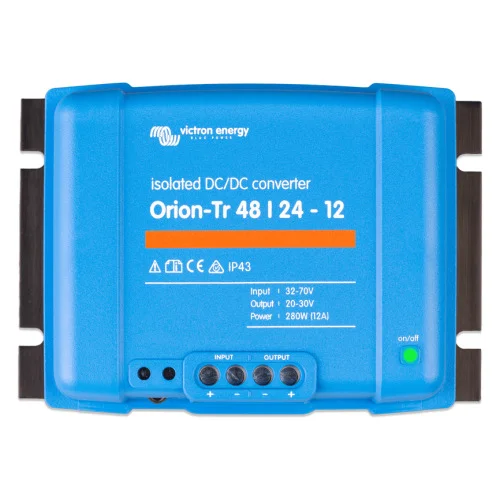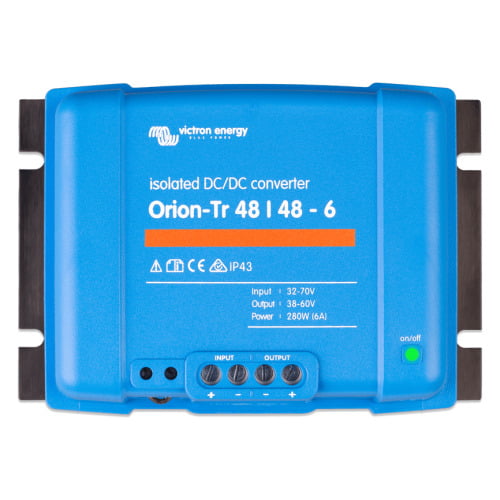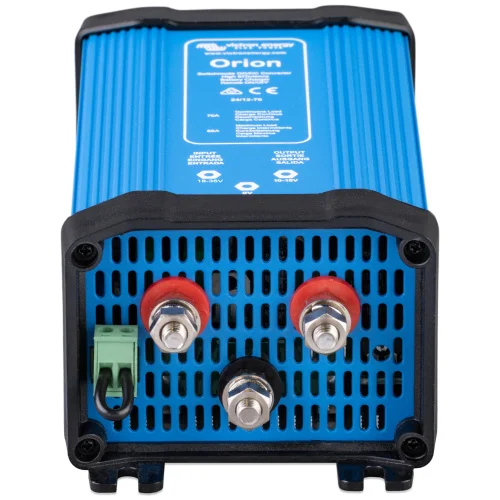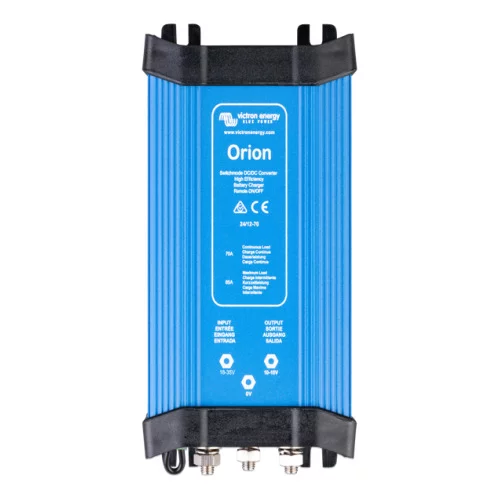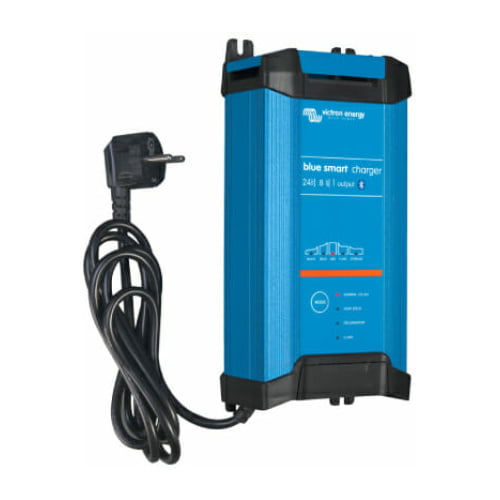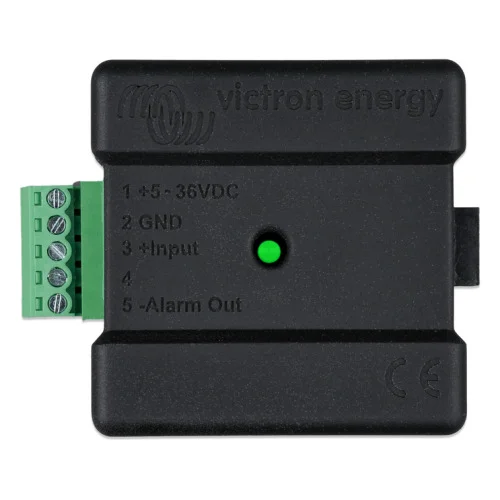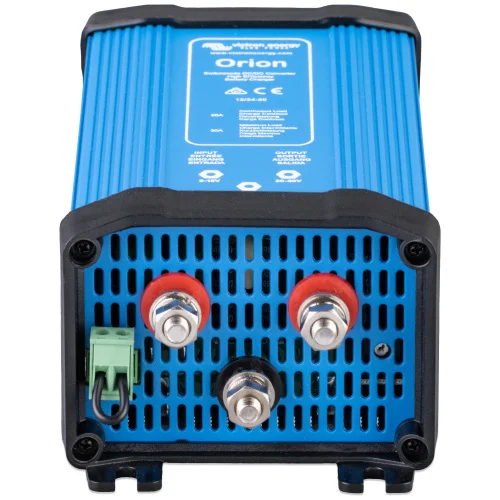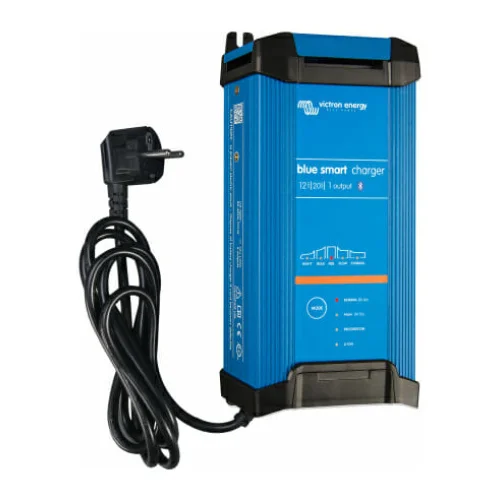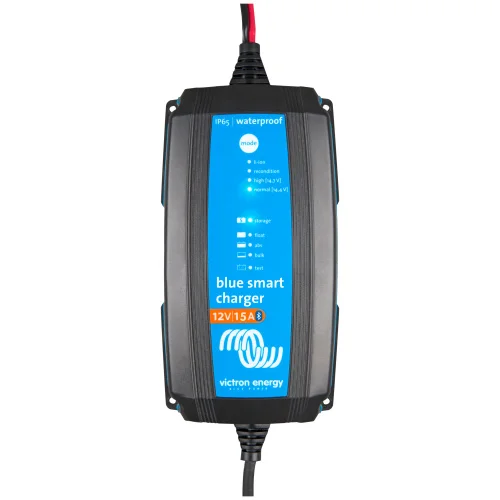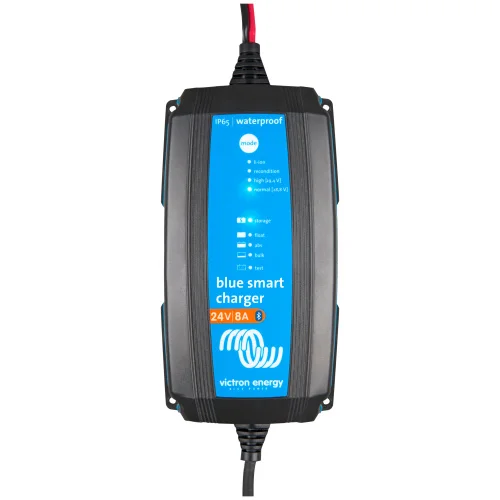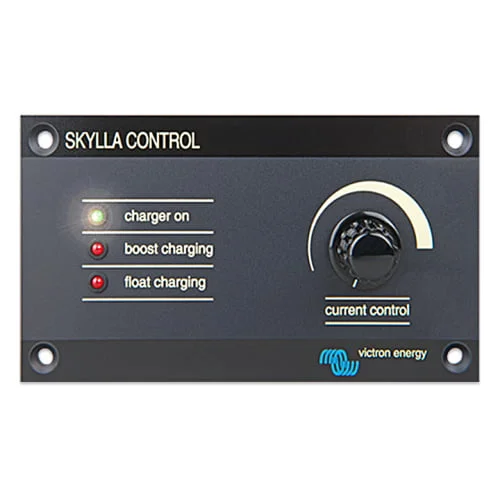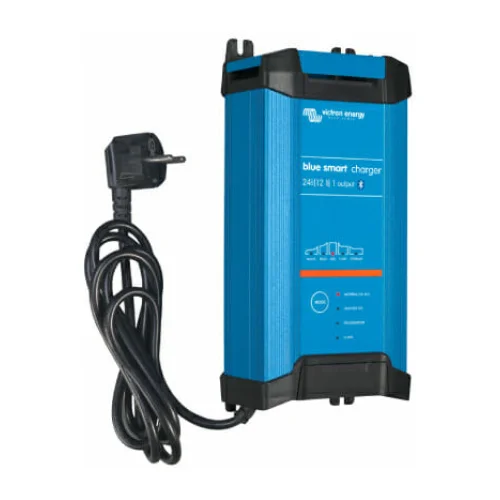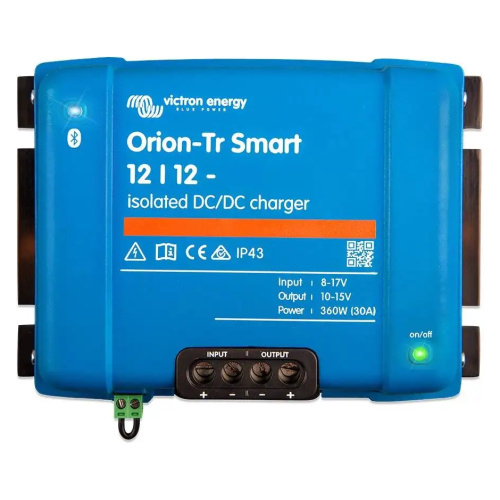- Free shipping to mainland Spain for orders over 300€.
Battery chargers
Mastervolt EasyCharge 12V 6A battery charger - 43310600
100,22€Original price was: 100,22€.69,28€Current price is: 69,28€.Victron Charger Switch - SDRPCSV
104,59€
What is a battery charger?
Battery chargers are devices designed to replenish the energy stored in rechargeable batteries using electrical current. They are essential devices to keep a battery fully operational and at full performance.
On the market there is a wide range of batteriesFor the battery to have full autonomy, it is necessary to have a battery charger that is suitable for the battery. battery type to be charged. GEL battery chargers, lead acid battery chargers or AGM battery chargers are just a few examples of the wide variety of industrial battery chargers available.
The price of the battery charger depends on the type. At FVComponentes.com you can buy a battery charger with the manufacturer's warranty.
How to choose the right battery charger?
The battery recharger is a recommendable element for photovoltaic installations, buying a battery charger guarantees total autonomy of the photovoltaic installation. Buy a battery charger is essential for the lifetime of the solar kit and the battery itself.
In many cases it is the price which determines the choice of battery charger. On FVComponents.com we guarantee: high quality and manufacturer's guarantee at the best price on the market.
The price of the charger depends on the brand and durability, the type of batteries that can be charged, as it is not the same to buy chargers GEL batteriesto one of lead or AGM. Industrial battery chargers must also be matched to the specifications of the batteries to be charged.
Buying a charger is essential for the battery's autonomy and in FVComponents.com we have the best quality chargers to ensure that the batteries work optimally.
What are the types of battery chargers?
There are several types of battery chargers designed to suit different battery types and applications:
- Charger for lead-acid batteries (GEL or AGM): These chargers are widely used to charge the batteries of vehicles such as cars. These types of batteries are widely used as chargers for industrial equipment such as forklifts and forklift trucks.
- Lithium Ion battery charger: These chargers are widely used in phones and computers. These are chargers that allow faster charging for devices with lithium-ion technology.
- Nickel battery charger: These are portable battery chargers, used in small, portable devices, usually small electronic equipment.
Each type of charger is designed for specific charging requirements, so it is important to choose the right charger for your battery and application. The right choice ensures safe, efficient charging and optimal performance and durability of your batteries.
Accessories for battery charging
In addition to being able to buy a battery charger at FVComponents.comWe also have battery charging accessories.
FVComponentes.com battery chargers meet the most demanding requirements in the industry. We offer the best prices and the possibility of buy this feeder in the simplest way thanks to our online shop.
The battery chargers offer the maximum guarantee of performance.
At FVComponentes.com we offer the best prices for battery chargers, we have the most internationally recognised brands and manufacturers. For example, AGM battery chargers and accessories.
If you are thinking of buy battery charger and you need more information about their battery charger price and its characteristics, contact us and our technicians will inform you about the battery chargers that best suit your needs and with manufacturer's warranty.
Charger charging stages
All solar battery chargers must be equipped with the four loading stages. The loading stages are:
- Bulk: In this initial stage, the charger supplies the maximum possible current to the battery until the 80-90% of its capacity is reached. This is to quickly charge up to a higher level.
- Absorption: This stage begins when 80-90% of the total capacity has been reached. The charger now gradually reduces the current while maintaining a constant voltage. This allows the battery to fully charge without overheating.
- Flotation: When the battery is fully charged, it moves to the float stage. In this stage, the charger supplies a small holding current.
- Equalisation: This stage is not always present in all chargers and is not suitable for all batteries. In this stage the cells are balanced and the plates are desulphated.
The first 3 stages must be completed on all battery charges. Equalisation charging shall only be performed 2 to 4 times per year.
A battery can be charged via a vehicle alternator or another type of charger. In this case, the four stages of charging are not carried out, so that batteries charged in this way will always have a shorter service life than that specified in the technical data sheet.
The equalisation loads are essential to remove the acid that remains sulphated inside the battery during charging and discharging, and to be able to equalise the voltage of all the vessels connected in series.
It is necessary to consult the battery manufacturer's technical data sheet to find out at what voltage the battery will start to equalise, the most normal being around 15V. This voltage should be maintained for a period of about 4 hours to recombine the sulphation produced.
Aspects to consider for the purchase of this device
Below we explain how to select the charger according to the type of batteries to be charged. Users have many doubts and there is very little information available beyond the technical data sheet of the charger itself and almost everyone ignores it. It is important to bear in mind that not all battery chargers are the same.
There are 2 basic elements to take into account. The voltage (V) and the amperage (A) on the charger's data sheet, usually next to "OUTPUT". The voltage of the adapter determines the compatibility of the charger with the battery bank For example, if you have a 24V battery bank, you need a charger with at least 24V output (26.7V is the most common value).
The amperage determines the charging current which is the speed of charging. For example, a 12V 32Ah battery will charge faster with a 12V 5A charger than with a 12V 2A charger.
The lead-acid charger is also suitable for lithium-ion batteries.
If we change our battery system, for example from lead batteries to lithium batteries, it is not necessary to change our charger. However, it is necessary to take into account the change of the battery capacity, because if the batteries have a higher capacity, our charger will take longer to charge them.
A higher amperage charger should be used.
It is the fundamental characteristic of the purchase of a chargerThis parameter will make it easier to charge the battery sooner. To find the right charger, the amperage (A) of the charger must be 10-15% of the battery capacity (Ah).

